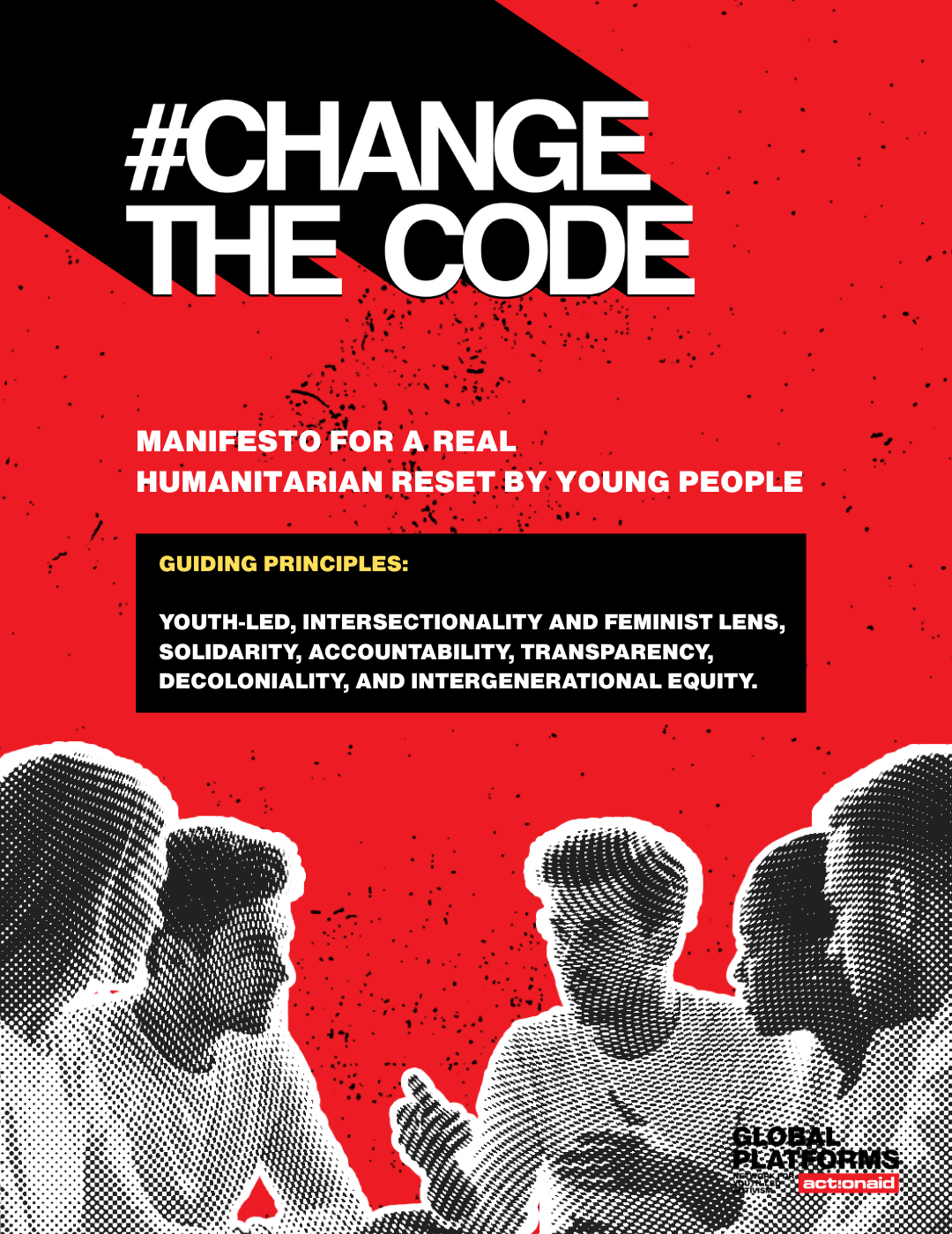The "Humanitarian Reset" is a comprehensive reform project for the international humanitarian system, launched by UN Emergency Relief Coordinator Tom Fletcher in March 2025. It aims to address a "profound crisis" of funding, legitimacy, and morale by making the system more efficient, effective, and locally led.
To us, this so-called “humanitarian reset" feels driven more by fear and short-term reactions than by real strategic vision. Despite all the promises of the Grand Bargain on localisation and participation, young people and local actors are still mostly sidelined from meaningful decision-making. That gap undermines legitimacy, ownership, and the long-term impact of humanitarian responses.
We are still seeing operational risks being shifted onto local actors and youth without providing the resources, power, or protection needed to carry them. We still have very little data showing what genuinely youth-centred models of aid can achieve, because they’re rarely funded, prioritised, or captured.
If we are being serious about a reset, a REAL reset, it has to start with inclusion, evidence, and shared power — not jargon.
#ChangeTheCode
#ChangeTheCode is a youth-led global initiative pushing back against the superficial and exclusionary approaches dominating the current Humanitarian Reset. We are here to amplify and collectivise the voices of young people on the frontlines, pairing advocacy with real evidence to build a sustained youth-led movement for structural change in the humanitarian architecture.
This campaign is…
- Youth-led: young humanitarians shaping the strategy, priorities, and actions.
- Policy-oriented: calling for structural changes in funding, decision-making, and accountability across the humanitarian system.
- Action-focused: blending advocacy with public awareness to influence both decisionmakers and youth communities.
- Diverse and inclusive: uniting young people across contexts, backgrounds, and expertise into one coalition.
- Evidence-based: grounded in research, lived experience, and local realities.
- Collaborative: engaging allies in civil society, the media, think tanks, and international organisations while keeping youth leadership at the core.
- Transparent and accountable: modelling the standards we are demanding from the wider humanitarian system.
We’re rewriting the code — not a quick system update, but instead building, line by line, the foundational architecture of a humanitarian system shaped with us, not for us.
As the sector navigates the "Humanitarian Reset" amid shrinking funding and growing crises, we face a decisive choice: Do we rebuild the same hierarchies, or do we finally leverage every asset at our disposal?
For too long, fear has held the sector back. Despite the clear commitments made in international frameworks like the Grand Bargain and the IASC Youth Guidelines, the sector has failed to translate policy into power.
We see "participation" limited to tokenistic advisory roles, while the real decisions, about funding, strategy, and design, are still made behind closed doors.
We are here to change the logic.
Backed by ActionAid International and Global Platforms, a team of young humanitarians spent three months probing existing international frameworks and consulting 1,000+ peers worldwide
The result is the Global Youth Manifesto.
This is not just a call for inclusion; it is a roadmap for systemic effectiveness. It consolidates the vision of young people ready to move from "beneficiaries" to co-leaders
Join the Movement
Are you ready to nudge yourself and your institution toward a true share of power?
- Sign as an Individual] Join 1,000+ young humanitarians and allies.
- Endorse as an Organization] Commit your institution to the principles of #ChangeTheCode.
- Review the Manifesto: Global Youth Manifesto
- Endorse the Call by filling the form here.


